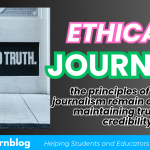Summarizing a literary text is a critical skill that allows readers to grasp the essence of a work without delving into every detail.

Photo courtesy: Freepik
Whether it’s a novel, short story, or poem, a good summary captures the core elements while maintaining clarity and brevity. Here’s a step-by-step guide to help you create an effective summary:
- Understand the Text Fully
Before summarizing, read the text thoroughly. For complex works, read multiple times to ensure a complete understanding. Pay attention to the plot, main characters, setting, and themes, as these are crucial for your summary. - Identify the Main Ideas
Extract the central plot points or arguments. For fiction, focus on the narrative arc: the exposition, conflict, climax, and resolution. For poetry or essays, determine the overarching theme or message. Avoid including minor details or subplots unless they are pivotal. - Use Your Own Words
Paraphrasing is key to writing a summary. Avoid quoting directly unless it’s essential to convey a specific idea. This ensures your summary remains concise and original. - Maintain Neutrality
Stick to presenting facts about the text. Avoid personal opinions, interpretations, or critiques. A summary is meant to inform, not analyze. - Keep It Concise and Organized
Focus on brevity. A summary should be significantly shorter than the original text, ideally capturing the main points in a few sentences or paragraphs. Organize the information logically, ensuring it flows smoothly.

Photo courtesy: Freepik
By mastering these techniques, you can effectively summarize any literary text, making it easier to understand and share its essence with others. Summarization not only aids comprehension but also sharpens critical reading and writing skills.











